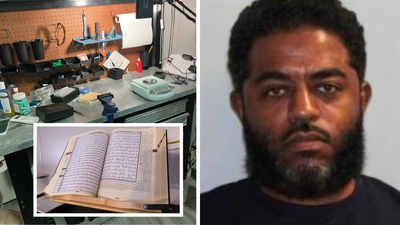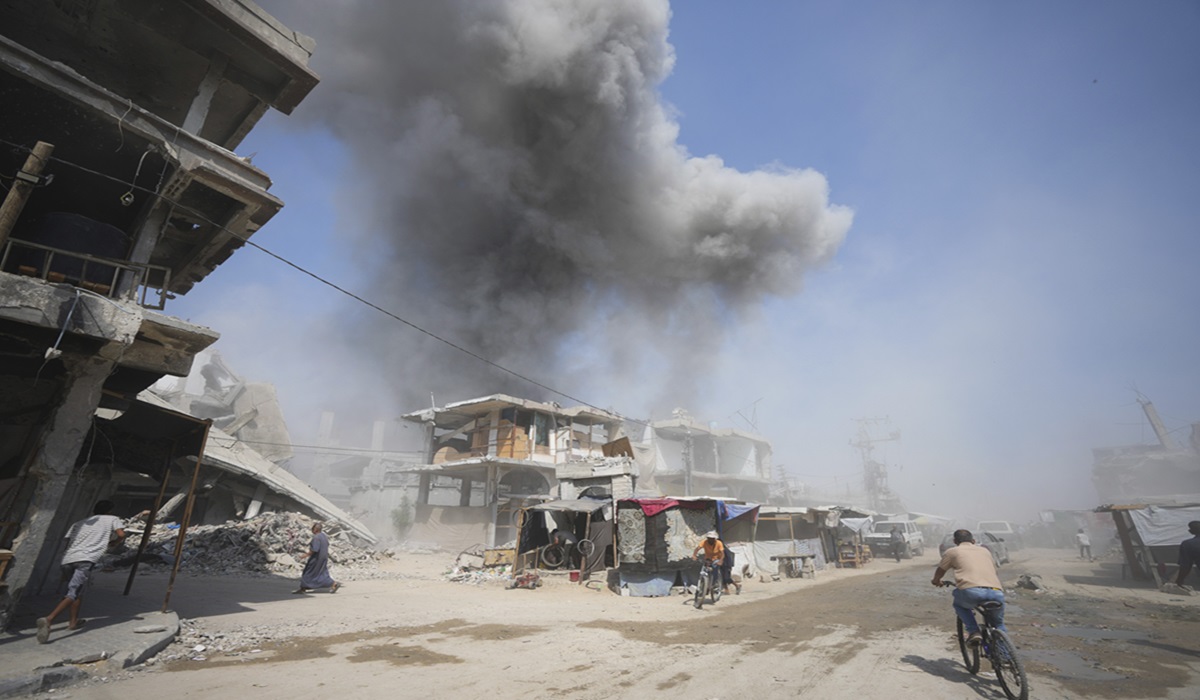Shamsud-Din Jabbar, a 42-year-old New Orleans terrorist who pledged allegiance to ISIS, left behind a chilling scene in his North Houston trailer home—complete with bomb-making materials, a Quran open to a passage glorifying violence, and signs of a life spiraling into chaos.
In the video posted by the New York Post, it showed a workbench in Jabbar’s bedroom set up for assembling explosives. Nearby, his Quran stood prominently atop a bookshelf, opened to Verse 9:111, which reads: “They fight in Allah’s cause, and slay and are slain; a promise binding…” The verse, widely interpreted as a call to violence by extremist ideologies, cast a haunting shadow over his already sinister acts.
On New Year’s Day, Jabbar drove a rented Ford F-150 Lightning into the heart of Bourbon Street, mowing down revelers at 3 a.m. in a gruesome rampage. Fourteen people were killed, dozens injured, and Jabbar himself died in a shootout with police. Federal investigators have ruled it an act of terrorism.
A house of red flags
Jabbar’s trailer home painted a grim portrait of his descent into extremism. Chemical residues and bottles filled the property, with an inventory left behind by FBI agents listing compounds commonly used in bomb-making. A rolled-up prayer rug and numerous Islamic books further hinted at his radicalization.
Yet, the home also bore traces of his fragmented personal life. A back bedroom was cluttered with children’s toys and bunk beds—remnants of his role as a father to two daughters, aged 15 and 20. The main bedroom held a keffiyeh hanging in the closet, signaling his ideological shift.
Hours before his attack, Jabbar told neighbors he was leaving for New Orleans for a new IT job. The lie was soon laid bare as the same white truck he drove off in became his weapon of mass destruction.
A veteran’s downfall
Once an Army staff sergeant, Jabbar served ten years, including deployments to Afghanistan from 2009 to 2019. But after leaving active duty in 2015 and the reserves in 2020, his life unraveled. Financial woes from two divorces, a failed real estate career, and struggles as an IT specialist marked his civilian years.
Despite his quiet demeanor, Jabbar’s radicalization had alarming roots. In videos posted before his attack, he not only declared loyalty to ISIS but also threatened to murder his own family. His younger brother, Abdur Jabbar, expressed shock: “This is more some type of radicalization, not religion. He was a sweetheart really, a nice guy, a friend, really smart, caring.”
A haunting legacy
Jabbar’s rampage left a city grieving and a nation questioning the hidden threats lurking within. From his squalid home filled with explosives to his tragic spiral into extremism, his story underscores the dangerous allure of radical ideologies and the human cost they leave in their wake.




